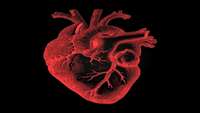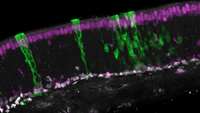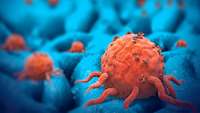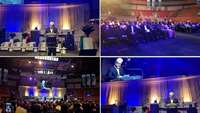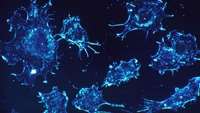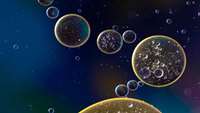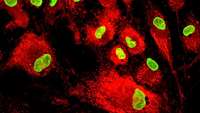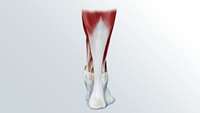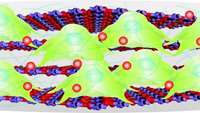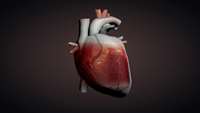Can stem cells help a diseased heart heal itself? Researchers achieve important milestone
A team of Rutgers scientists, including Leonard Lee and Shaohua Li, have taken an important step toward the goal of making diseased hearts heal themselves—a new model that would reduce the need for bypass surgery, heart transplants or artificial pumping devices.
Researchers discover abundant source for neuronal cells
USC researchers seeking a way to study genetic activity associated with psychiatric disorders have discovered an abundant source of human cells—the nose.
Diabetes and hypertension drug combo kills cancer cells
Recently, scientists have brought more uses of the drug to light. Physicians prescribe metformin to help treat polycystic ovary syndrome, and some researchers have suggested that the drug may improve fertility and help regulate menstrual cycles.
Growth of innovation” will be associated with economic prosperity
The vice president for science and technology affairs stated: there will be economic growth if we make developments in innovations and technological products.
Treatment shown to improve the odds against bone marrow cancer
Hope has emerged for patients with a serious type of bone marrow cancer as new research into a therapeutic drug has revealed improved outcomes and survival rates.
Study identifies stem cell that gives rise to new bone and cartilage in humans
A decade-long effort led by Stanford University School of Medicine scientists has been rewarded with the identification of the human skeletal stem cell.
Stem Cells’ Consumption of ‘Sweets’ Helps Them Fight Inflammation
A new study published in STEM CELLS Translational Medicine shows that the energy metabolism of human mesenchymal stem cells (hMSCs) can be targeted to increase their ability to enhance tissue regeneration. The study offers a strategy that has immediate translational potential for improving hMSCs’ therapeutic success.
Engineers develop process to 3-D print cells to produce human tissue such as ligaments and tendons
With todays technology, we can 3-D-print sculptures, mechanical parts, prosthetics, even guns and food. But a team of University of Utah biomedical engineers have developed a method to 3-D-print cells to produce human tissue such as ligaments and tendons, a process that will greatly improve a patients recovery.
Researchers advance stem cell therapy with biodegradable scaffold
Rutgers scientists have created a tiny, biodegradable scaffold to transplant stem cells and deliver drugs, which may help treat Alzheimer’s and Parkinson’s diseases, aging brain degeneration, spinal cord injuries and traumatic brain injuries.
Scientists use stem cells to grow a BEATING human heart muscle for the first time ever
This development is a step forward in studying human physiology as it gives researchers a way to test treatments for conditions like heart failure on a lab-grown heart that can mimic a diseased adult one.


